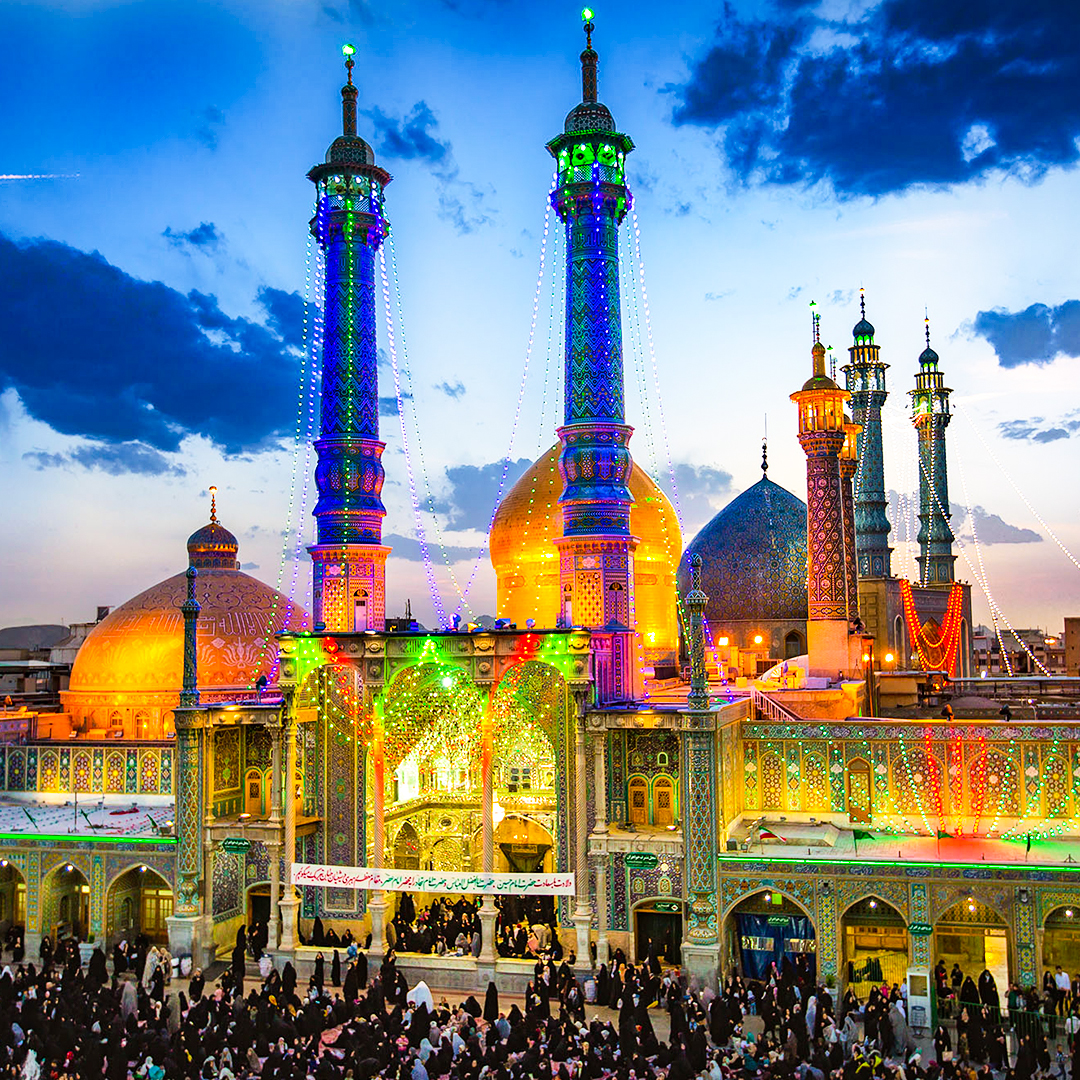Eid al-Adha is one of the greatest celebrations of the Muslims and is commemorated on the 10th of Dhul Hijjah (the 12th month of the Islamic lunar calendar). According to Islamic narrations, on this day Allah commanded Prophet Ibrahim or Abraham (peace be on him) to sacrifice his son, Ismail, or Ishmael (peace be on him). In obedience to Allah’s command, he took his son to the place of slaughter; however, Gabriel came down with a “ram or sheep” and Prophet Ibrahim sacrificed it instead of his son.
If we look at the root of this issue, Allah never wanted Ismail to actually be sacrificed; rather, the goal was solely to test Ibrahim and for him to cut off from worldly and material attachments. Therefore, as soon as he proceeded with this act, neither did the sharp knife cut and nor did Ismail get sacrificed. Allah legislated this act as a tradition in Islam for this act to symbolically remain and so that all those who came in the future could also show with this act that they too, like Prophet Ibrahim, would give up their base desires in obedience to Allah.
The secrets and philosophy behind making a sacrifice are to attain closeness to Allah; if this act is based on taqwa (piety and God-wariness), the intended closeness will be attained inshaAllah (with the will of Allah). This has been indicated in the following verse: “It is not their flesh or blood that reaches Allah; rather, it is your piety that reaches Him” (Quran 22: 37, Qarai translation)
In the Age of Ignorance before Islam, the people would defile the Kaʿbah with the blood of their sacrificed animal and hang its meat on it so that Allah would accept it. The Quran has condemned this custom and introduced piety as the condition for the acceptance of sacrifice; as indicated in the aforementioned verse.
One of the other philosophies of sacrifice is feeding the poor and needy. The Holy Prophet (peace be on him and his household) brought a hundred camels with him for sacrifice in the Farewell Pilgrimage. He explained the philosophy of making sacrifice obligatory as addressing the needs of the poor and stated: therefore, feed them its meat.
It has been reported in a narration that Imam al-Sadiq (peace be on him) has said: Imam al-Sajjad and Imam al-Baqir (peace be on them) would divide the meat of sacrifice into three parts; they would give one part to their neighbors, one part to the needy and would keep the third part for their family.
Even today, the meat of the slaughtered animal, under the supervision of the Islamic Development Bank and after being examined, is given to the visitors and needy who are present in Mina (a place situated to the east of Makkah and where some of the rites of Hajj are performed, including sacrifice). The rest is sent to 27 deprived Asian and African countries by land and sea.
One of the other purposes of sacrifice is the remembrance of Allah and remembering all the blessings, including the lawful livestock; and sacrifice becomes lawful through Allah’s remembrance. “That they may witness the benefits for them, and mention Allah’s Name during the known days over the livestock He has provided them…” (Quran 22: 27, Qarai translation).
The Transcendental Philosopher, Rafiei Qazvini has stated regarded the secrets of Eid al-Adha: making a sacrifice on that day, has an apparent form and an esoteric one; its apparent form is to kill the animal which meets specific characteristics and features and its inner aspect is to kill one’s animal soul; because at the level of the animal soul, a human being is no different from an animal. The sacrifice on the day of Eid al-Adha is an indication of the sacrifice of the animal soul, not the rational soul. If Ismail (peace be on him) had been sacrificed, it would have been necessary to sacrifice a human being; however, that which must disappear in the course of way-faring is the level of animality, not rationality. This is because there are no obstacles in the domain of the intellect in the course of way-faring; however, there are many obstacles in this course in the animal faculty.
Imam al-Sadiq (pe
ace be on him) also advises the performers of Hajj to “slit the throat of one’s base desires and greed”. The one performing Hajj knows that the sacrifice at Mina means to banish all material attachments, spiritual contamination, base desires, inappropriate lustful desires, and satanic temptations and he (the one performing Hajj) considers Mina to be the place of sacrificing and killing the base and inner desires of the soul and ego and decides there to distance himself from all that is other than God and to master the inner and outer devils.
And finally, the secret to reciting the ziyarah of Imam Husayn (peace be on him) on this day is for his remembrance and eternal revolution to be revived in the minds of people; for if Ibrahim, the Friend of Allah, took one sacrifice to Mina and returned him safely, Imam Husayn (peace be on him) brought seventy-two people for sacrifice at Karbala in one day and presented the severed heads and the bodies soaked in the blood of his companions and family members, from his breastfeeding infant to an old man, to Allah, all at one place for the sake of protecting Islam.
Compiler: Safura Taraqqi
Translator: Rashed


